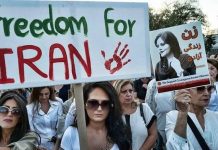Gaza and the Beirut invasion scenario
Wednesday, 23 July 2014
Abdulrahman al-Rashed/Al Arabiya
A host of Israeli dailies have increasingly published calls for Prime Minister Benjamin Netanyahu to end the existence of Hamas, and not just suppress it. Those calling for a full scale invasion admit that the war will cost the Israelis a high price, but they say that the local public opinion is willing to accept those costs. Some see the battle as a rare opportunity, considering the Egyptians’ preoccupation with their own domestic affairs and their dispute with Hamas in general. Previously, Egypt played the role of the mediator and exerted pressure on the Israelis to prevent them from altering the status quo in Gaza. Late Intelligence Chief Omar Suleiman used to open up tunnels, turn a blind eye to the smuggling of arms to Hamas and negotiate on behalf of Hamas leaders. The situation has changed a lot after Hamas sided with the Muslim Brotherhood against the government of Abdel-Fattah al-Sisi.
The most serious aspect of these calls for a complete invasion is uprooting Hamas from Gaza, like Israel did to the Palestinian Liberation Organization in 1982. Back then, Israeli Defense Minister Ariel Sharon surprised the world when he sent his forces towards the Lebanese capital, Beirut, announcing he had one mission: eliminating Fatah and its leaders, mainly Yasser Arafat. He succeeded in eliminating the armed Palestinian presence in Israel’s surroundings, and Fatah’s leaders were exiled to Tunisia, Sudan and Yemen. Israel exiled Arafat from Lebanon to Tunisia and believed it had gotten rid of him. However, within the context of the Oslo Agreement, Arafat returned to Palestine itself, to Gaza and Ariha, along with tens of thousands of his fighters.
Previously, Egypt played the role of the mediator and exerted pressure on the Israelis to prevent them from altering the status quo in Gaza
The Israelis are threatening a full invasion that aims to get rid of Hamas’ leaders and exile them, probably to Qatar and Iran in my view, within a context that leads towards totally lifting the siege. However, Israel knows that Hamas – despite its extremism and connection with hostile parties like Iran – may be the least dangerous to Israel when compared with salafist jihadist groups that may be linked to al-Qaeda. Over the past few years, Hamas has taken it upon itself to curb extremist powers in Gaza. It (Hamas) dared to destroy a mosque on top of their heads (the extremist groups) in Gaza, so who will play the role of the police that will control the front with Israel?
The miracle which this tragedy may achieve is reaching a political solution with Hamas itself – a solution that leads to lifting checkpoints and the boycott and to opening the port and allowing fishing, in addition to Hamas’ commitment to an agreement similar to that which the Palestinian Authority agreed on in the West Bank and to that which Hezbollah signed in southern Lebanon.





















